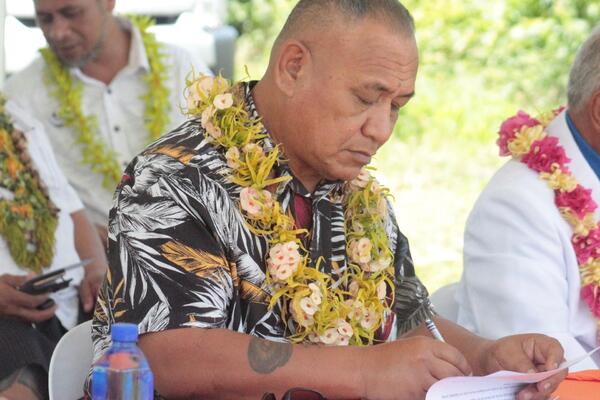Counsel for Aliimalemanu Alofa Tuuau and Fagasealii Sapoa Feagia’i, former Attorney General Aumua Ming Leung Wai said they are seeking coercive orders against the Speaker of the House to swear in the women Members of Parliament.
Also the applicants are seeking declaratory orders that the refusal by the Speaker, is unlawful and discriminatory.
The hearing was presided over by Chief Justice his Honour Satiu Simativa Perese, Justice Vui Clarence Nelson and Justice Lesatale Rapi Vaai this morning.
Aliimalemanu and Fagasealii’s seats were activated by the Office of the Electoral Commissioner after the results of the by-elections which were supported by the Head of State.
However the Speaker of the House refused noting there were petitions at that time, which had since been withdrawn and now the Speaker continues to defer the swearing in noting there’s an application by for FAST candidate To’omata Nora Leota, questioning the appointment by the former Electoral Commissioner of the appointment of Aliimalemanu and Fagaesealii under the 10 percent for women MP’s.
Aumua further argued that despite the writ signed by the highest order of the land, the Head of State the Speaker refused to have the applicants sworn in.
He said currently there are four female MP’s and the court of appeal has already ruled that there are six female MP’s as required by article 44. Noting the general election and by election results are in, that is the “point of certainty where the 10 percent minimum women MP’s should be decided. ”
“After the by-election that is where the point of certainty was reached,” said Aumua. Adding there are no election petitions before the court.
Leilani Tamati said the essence of their submission is the issue of certainty and also there is an application filed by Toomata before the court questioning the formula of how the 10 percent was reached.
The Chief Justice then asked the Counsel as to what the law says regarding the Speaker’s duty, in response Tamati replied that he’s to dully swear in M.P.’s
The Chief Justice then asked: “so what you would like for this court to say is that we should come to a position on the Speaker's basis that there might be some application that might challenge the status of the law [and] he's entitled not to follow his constitutional duty?”
Ms Tamati argued that in light of the uncertainty the Speaker’s facing but the Chief Justice intervened and enquired about the Speaker’s application on Article 47 which refers to the decisions on questions as to membership of Members of Parliaments to be determined by the Supreme Court.
Leilani responded they have not filed an application pertaining to Article 47, but they can file it later.
This did not sit well with the Chief Justice who said: “that is not a good enough answer, because these are important Constitutional issues and what I think he’s done is that he piggybacks on the third party.”
Tamati noted there is no intention to cause any confusion, rather seeking the court’s guidance so that the Speaker is certain.
Justice Nelson said the Speaker is relying on an argument that would seem to be a non-argument as the Judges pointed out it is the highest number of votes on Article 44 subsection 5 and it means the percentage of the total valid votes in a Constituency and that is the method of the calculation prescribed by the Constitution.
Among other issues raised by Justice Nelson is the “uncertainty” the Speaker is referring to, and Tamati pointed to the affidavit by Toomata on the basis of her application. But Justice Nelson noted those are her views and question what is in the constitution that causes the uncertainty.
The court reserved its decision.










